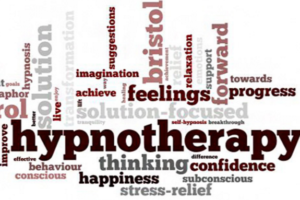 1) First Impressions Matter: Your website is often the first interaction potential customers have with your brand. A professional, user-friendly website creates a positive first impression.
1) First Impressions Matter: Your website is often the first interaction potential customers have with your brand. A professional, user-friendly website creates a positive first impression.
2) Accessibility: A website makes your business accessible 24/7, allowing customers to learn about your products or services and make purchases at their convenience.
3) Credibility: A well-designed website lends credibility to your business. Customers are more likely to trust a company with a professional online presence.
4) Marketing and Advertising: A website serves as a central hub for your marketing and advertising efforts. You can integrate social media, email campaigns, and other online marketing strategies to drive traffic to your site.
5) Customer Engagement: Your website can facilitate better engagement with customers through blogs, newsletters, forums, and customer reviews. This interaction helps build a loyal customer base.
6) Sales and Revenue: An e-commerce website can significantly increase your sales by providing a platform for customers to purchase products or services directly online.
7) Information and Updates: Your website is an effective way to share important information and updates about your business, such as new products, promotions, and company news.
8) SEO Benefits: A well-optimized website improves your visibility on search engines, making it easier for potential customers to find you. This can lead to increased traffic and higher conversion rates.
9) Competitive Advantage: Having a great website can give you an edge over competitors who may not have a strong online presence. It showcases your professionalism and commitment to providing value to your customers.
10) Analytics and Insights: Websites provide valuable data and insights into customer behavior, preferences, and demographics. This information can help you make informed business decisions and refine your marketing strategies.
 Routine hypnotherapy, like meditation, offers many life-enhancing benefits. My clients are advised to listen to their office hypnotherapy sessions daily for 3 months. Its the repetition that ensures sustainable relief from whatever problem they pursued hypnotherapy to fix.
Routine hypnotherapy, like meditation, offers many life-enhancing benefits. My clients are advised to listen to their office hypnotherapy sessions daily for 3 months. Its the repetition that ensures sustainable relief from whatever problem they pursued hypnotherapy to fix.
1 Sound Sleep: Hypnosis can improve your sleep quality, ensuring that you are well-rested and have the energy needed to pursue your goals effectively.
2 Enhanced Confidence: Hypnosis can boost your self-esteem and confidence, making you more likely to take the necessary steps toward achieving your goals.
3 Improve Visualization Skills: Hypnosis often involves visualization techniques, which can help you create a clear mental picture of your goals and the steps needed to achieve them.
4 Consistency and Discipline: By making hypnosis a daily habit, you can develop greater consistency and discipline, which are crucial for long-term success.
5 Healthy Habits: Hypnosis can help reprogram your subconscious mind to adopt healthier habits and behaviors that support your goals, such as eating healthier, exercising regularly, or staying organized.
6 Less Stress: Regular hypnosis sessions can lower stress and anxiety levels, allowing you to approach your goals with a calm and clear mind.
7 Optimize Motivation: Hypnosis can enhance your motivation by reinforcing your desire to achieve your goals and reminding you of the benefits of reaching them.
8 Pain Relief: If physical pain or discomfort is a barrier to your success, hypnosis can help manage and reduce pain, allowing you to focus better on your goals.
9 Positive Attitude: Regular hypnosis sessions can help cultivate a positive mindset, which is essential for overcoming challenges and staying persistent.
10 Improved Focus: Hypnosis can help you improve your ability to focus and concentrate, which is crucial for staying on track with your goals.
by: Paul Gustafson
 When you think about hypnosis, what do you visualize? For many, it’s a clock-swinging magician or a comedy act that forces an unwitting volunteer to make embarrassing public admissions on stage.
When you think about hypnosis, what do you visualize? For many, it’s a clock-swinging magician or a comedy act that forces an unwitting volunteer to make embarrassing public admissions on stage.
But hypnosis has a surprisingly robust scientific framework. Clinical research has shown that it can help relieve pain and anxiety and aid smoking cessation, weight loss, and sleep.
It can help children and adolescents better regulate their feelings and behaviors. Some people can even use “self-hypnosis” to manage stress, cope with life’s challenges, and improve their physical and emotional health.
Hypnosis creates “a non-judgmental immersive experience,” says Dr. David Spiegel, a Stanford University psychiatrist and leading researcher of hypnosis.
It’s been used in various forms for centuries, but it wasn’t until 1843 that the Scottish surgeon Dr. James Braid popularized the term “hypnosis.
” Braid’s central discovery—that concentration can guide the brain toward a more suggestible state—was and remains controversial. But physicians have continued to test and teach the technique over the centuries with great success, Spiegel says.
Today, a psychologist, psychiatrist, or other healthcare professional certified in hypnotherapy will first screen a potential client for their ability to be hypnotized using a validated suggestibility scale. (Not everyone is equally susceptible to hypnosis, but research has found that about two-thirds of adults are.)
The hypnotherapist will talk with them about what sort of sensory experiences make them feel safe, like a lakeshore retreat or a beach vacation.
 Then, the hypnotherapist will conjure that imagery—focusing, for example, on the salt spray of the ocean, seagulls calling overhead, and sun-kissed skin—to help the person go deeper into the calming visualization. If done right, the patient’s physical surroundings will melt away.
Then, the hypnotherapist will conjure that imagery—focusing, for example, on the salt spray of the ocean, seagulls calling overhead, and sun-kissed skin—to help the person go deeper into the calming visualization. If done right, the patient’s physical surroundings will melt away.
The result is a powerful combination of dissociation, immersion, and openness to new experiences, which culminates in what was once called a “trance,” but which modern hypnotherapists simply refer to as a “hypnotic state.” It can be achieved in just a few minutes, Spiegel says.
Such scene-setting techniques can create the ideal stage for positive transformation, says Binghamton University psychology professor Steven Jay Lynn. During hypnosis, people are more open to the suggestions of the hypnotherapist, whether those ask the patient to detach themselves from a past painful experience or visualize a solution to their problem.
For some people, these changes may be catalyzed in a one- or two-hour session. For others, hypnotherapy or self-hypnosis may be a regular part of their mental health care. “Hypnosis can modify consciousness in many ways,” Lynn says.
This state of deep relaxation isn’t particularly difficult for most people to dive into or emerge from. It’s similar to a “flow state,” Spiegel says, or an altered state of consciousness in which a person is so immersed in a given activity, their focus narrows and their sense of time shifts.
It’s also reminiscent of what happens during meditation, except instead of training people to tune into the present moment, hypnosis makes them more receptive to suggestion. Like meditation practice, many people are capable of doing hypnosis on their own, Spiegel says. In 2020, he co-founded Reveri, a subscription-based self-hypnosis app that’s structured a lot like Calm or Headspace.
A user can access recordings that guide them into a hypnotized state, after which they’re given suggestions or statements that lead them toward a goal the person selects before the session. “We do it all the time,” Spiegel says of entering and exiting these mental states, “but in hypnosis you do it more.”
Brain-imaging studies have helped to illuminate what happens inside the hypnotized brain, though much still remains a mystery. During hypnosis, activity in a brain region that helps people switch between tasks quiets down, Spiegel says.
This same region seems to disconnect from another area responsible for self-reflection and daydreaming—which may be why hypnotized people aren’t worried about who they are or what they’re doing.
Researchers have also found that hypnosis can calm brain regions that help control autonomic functions like heart rate, blood flow, and breathing. This is likely what leads to the physical relaxation that’s a hallmark of hypnosis, Spiegel says.
One of the most interesting modern applications of hypnosis is in the operating room, says Lorenzo Cohen, director of the Integrative Medicine Program at the University of Texas MD Anderson Cancer Center. For some localized breast cancer surgeries, namely lumpectomies, the center lets patients choose between general anesthesia or a localized anesthetic and hypnotherapy.
Those who choose the second option remain fully awake during their surgery, but a hypnotherapist first helps them enter a state of deep relaxation, or “hypnosedation,” Cohen says. “The local [anesthesia] should be doing its thing,” Cohen says. “The rest is in your head.”
More than 30 clinical trials have affirmed the use of hypnosedation, says Cohen (who is also researching the practice).
Studies have shown that people who received hypno-sedation experienced less preoperative anxiety, required less pain medication during surgery, and reported less post-operative pain intensity, nausea, fatigue, and discomfort than people who chose general anesthesia, Cohen says.
“The hypothesis is that the patients who are under general anesthesia, even though they’re not conscious, are having an intense stress response,” he says.
This can suppress an immune system that, in cancer patients, is already compromised by the disease and its treatments. When patients choose hypnosis, Cohen believes the body’s fight-or-flight response may be reduced.
Despite the mounting evidence, hypnosis is not without skeptics. Randomized controlled trials have found that hypnosis can help with pain and anxiety associated with a range of medical conditions, but even the best studies can’t meet the gold-standard of a double-blind design, Spiegel says.
 While patients and practitioners can be kept in the dark about what pill they’re administering or receiving, it’s almost impossible to design a study where neither side knows hypnosis is being delivered, he adds.
While patients and practitioners can be kept in the dark about what pill they’re administering or receiving, it’s almost impossible to design a study where neither side knows hypnosis is being delivered, he adds.
And historically, the power of hypnosis hasn’t always been wielded responsibly. The imaginative potential of hypnosis has been shown to create false memories—sometimes with devastating effects. At least 27 states ban hypnotically-elicited testimony from appearing in court. Hypnotherapists should avoid using the technique to “recover” memories, Lynn says.
But when conducted by a trained professional and properly applied, modern hypnotherapy can provide powerful results. Susceptibility to suggestion is often “viewed as a liability or a weakness,” Spiegel says, “but it’s really a strength.”
by: Eleanor Cummings

 Among the wide array of alternative therapies, hypnotherapy has long been an interesting option for those seeking unconventional solutions to various issues like stress, anxiety, and habit breaking. In addition to the usual mainstream hypnotherapy options there are several applications of this meditative modality that extend beyond the conventional, delving into uncharted territories of inner thought.
Among the wide array of alternative therapies, hypnotherapy has long been an interesting option for those seeking unconventional solutions to various issues like stress, anxiety, and habit breaking. In addition to the usual mainstream hypnotherapy options there are several applications of this meditative modality that extend beyond the conventional, delving into uncharted territories of inner thought.
Quantum Hypnotherapy
Picture a form of hypnotherapy that ventures into the quantum realm, blurring the lines between science and spirituality. Quantum hypnotherapy suggests that our consciousness is intricately linked with the universe’s fabric. Practitioners guide individuals through profoundly deep hypnotic journeys, uncovering the potential for healing and self-discovery at the quantum level.
Hypnotic Regression to Parallel Realities
Traditional regression hypnotherapy is typically a journey to past experiences, but what if we could explore not just our own past, but parallel  realities? Some practitioners guide individuals into hypnotic states offering access to memories from alternate timelines. This unconventional approach invites a captivating exploration within the depths of the hypnotic mind.
realities? Some practitioners guide individuals into hypnotic states offering access to memories from alternate timelines. This unconventional approach invites a captivating exploration within the depths of the hypnotic mind.
Dream Integration Hypnotherapy
Dreams are considered windows to the subconscious, and dream integration hypnotherapy takes this notion to new heights. This approach guides individuals into a hypnotic state where they actively interact with and influence the content of their dreams. By subconsciously navigating the dream realm, individuals gain insights into their deepest fears, desires, and unresolved issues.
Hypnotherapy and Virtual Reality
In this age of advanced technology, some hypnotherapists incorporate virtual reality (VR) into their practice. This innovative approach creates immersive and personalized hypnotic experiences within virtual environments. Whether overcoming phobias or addressing trauma, the fusion of hypnotherapy and VR provides a unique and powerful avenue for therapeutic exploration.
Metaphysical Hypnotherapy
Metaphysical hypnotherapy goes beyond the conventional mind-body connection, exploring intricate relationships between the mind, spirit, and the unseen energies around us. Practitioners may guide individuals to connect with spirit guides, explore past lives, or tap into higher states of consciousness for profound healing and self-awareness.
Conclusion
These fascinating applications may stretch the boundaries of traditional hypnotherapy, yet they underscore the evolving nature of alternative therapies. As individuals continue to seek unconventional paths for personal growth and healing, hypnotherapy emerges as an effective gateway into the uncharted realms of the inner mind.
by P Gustafson

 Hypnosis has long been used to treat and manage a host of psychiatric and neurologic symptoms. However, not all patients respond equally to this therapy type. About two thirds of the general adult population are estimated to be at least somewhat hypnotizable, and 15% are highly hypnotizable.
Hypnosis has long been used to treat and manage a host of psychiatric and neurologic symptoms. However, not all patients respond equally to this therapy type. About two thirds of the general adult population are estimated to be at least somewhat hypnotizable, and 15% are highly hypnotizable.
Through brain imaging, the Stanford team found that high hypnotizability is associated with greater functional connectivity between the left dorsolateral prefrontal cortex (DLPFC) and the dorsal anterior cingulate cortex.
“A novel aspect of this trial is that we used the person’s own brain networks, based on brain imaging, to target the right spot,” Co-senior author Nolan Williams, MD, with Stanford University, California, said in a news release.
The team chose patients with chronic pain because hypnosis has been shown to be a “highly effective analgesic that has a far better risk/benefit ratio than widely overutilized opioids that have serious fatal overdose potential,” Spiegel told Medscape Medical News.
The pre-to-post SHIFT change in hypnotic induction profile scores, a standardized measure of hypnotizability, was significantly greater in the active vs sham group after just 92 seconds of stimulation (P = .046).
Only the active SHIFT group showed a significant increase in hypnotizability following stimulation, an effect that lasted for about 1 hour.
“Increasing hypnotizability in people who are low-to-medium hypnotizable individuals could improve both the efficacy and effectiveness of therapeutic hypnosis as a clinical intervention,” the researchers wrote.
They note that because this was a “mechanistic study,” it did not explore the impact of increased hypnotizability on disease symptoms. They also note that further studies are needed to assess the dose-response relationships of SHIFT.

Transformative Research
“This line of research is fascinating,” Shaheen Lakhan, MD, PhD, neurologist, and researcher in Boston, told Medscape Medical News.
“We are nearing an era of personalized, noninvasive brain modulation. The ability to individually modulate the DLPFC opens new possibilities for brain health beyond hypnotizability for fibromyalgia,” said Lakhan, who wasn’t involved in the study.
“The DLPFC is involved in executive functions (and disorders) like attention (ADHD), emotional regulation (depression), motivation (schizophrenia), and impulse control (addiction),” he noted.
“Soon we may no longer need large expensive devices like transcranial magnetic stimulators as in this research study. Smartphones could deliver tailored digital therapeutics by engaging specific brain circuits,” Lakhan predicted.
“Imagine using an app to receive treatment customized to your unique brain and needs — all without anything implanted and delivered anywhere. The potential to precisely modulate the brain’s wiring to enhance cognition and mental health, without surgery or physical constraints, is incredibly promising. The possibilities are intriguing and could truly transform how we address brain diseases,” he added.
The study was supported by a grant from the National Center for Complementary and Integrative Health (NCCIH), part of the National Institutes of Health (NIH). Williams is a named inventor on Stanford-owned intellectual property relating to accelerated TMS pulse pattern sequences and neuroimaging-based TMS targeting; has served on scientific advisory boards for Otsuka, NeuraWell, Magnus Medical, and Nooma as a paid advisor; and holds equity/stock options in Magnus Medical, NeuraWell, and Nooma. Spiegel is a cofounder of Reveri Health, Inc., an interactive hypnosis app (not utilized in the current study).
 Despite robust evidence for myriad ailments and sound mechanistic data, hypnosis is underused by internists. Using hypnosis fulfills our pledge to abide by evidence-based treatments that alleviate suffering with the least collateral harm, but there is a discrepancy between its benefits and physicians who offer the treatment.
Despite robust evidence for myriad ailments and sound mechanistic data, hypnosis is underused by internists. Using hypnosis fulfills our pledge to abide by evidence-based treatments that alleviate suffering with the least collateral harm, but there is a discrepancy between its benefits and physicians who offer the treatment.
Although hypnosis may appear in the medical curricula at academic powerhouses like Baylor, Harvard, Columbia, and Stanford, hypnosis training is rare even at these institutions. Here is why a modern resurrection of the oldest Western form of psychotherapy should inspire internists to get trained and offer medical hypnosis broadly.
Hypnosis, and its myths and misconceptions, have evolved since the 18th century when Franz Mesmer inadvertently led hypnosis into obscurity with his theory about manipulating a force called “animal magnetism.” These claims were dispelled by the French Royal Academy of Sciences, and it took nearly 100 years for Scottish physician James Braid to first describe a mental and suggestive theory of hypnosis as a waking physiologic state.
The 2014 definition from the American Psychological Association’s Division 30 describes hypnosis as “a state of consciousness involving focused attention and reduced peripheral awareness characterized by an enhanced capacity for response to suggestion.”
Long-standing empirical evidence demonstrates that hypnosis impacts perception, symptoms, and habits, which have recently been explained by advanced diagnostic modalities like functional magnetic resonance imaging (fMRI). Changes during hypnosis include reduced activity in the dorsal portion of the anterior cingulate cortex (a key component of the salience network) and connectivity between the prefrontal cortex and the insula (a pathway for mind-body control).
Augmented by data on neurotransmitter metabolism and genetics, the neurophysiologic basis of hypnosis is no longer mysterious. Though our understanding of the mechanism of action of hypnosis is more robust than that of even acetaminophen, this has not sufficed to enhance its use.
 Skeptics describe hypnosis in 1 of 3 ways: dangerous mind control, an ineffective farce, or placebo. It is often viewed as a loss of control and, therefore, dangerous, when in fact it is a powerful means of teaching patients how to control mind and body. The ability to enter into hypnosis, termed hypnotizability, is a stable trait possessed by most people, which can be entered into or terminated by the patient.
Skeptics describe hypnosis in 1 of 3 ways: dangerous mind control, an ineffective farce, or placebo. It is often viewed as a loss of control and, therefore, dangerous, when in fact it is a powerful means of teaching patients how to control mind and body. The ability to enter into hypnosis, termed hypnotizability, is a stable trait possessed by most people, which can be entered into or terminated by the patient.
It is not effective in the presence of conditions such as stroke or schizophrenia or impaired focused attention or language processing. Hypnosis is more powerful than placebo (though patient expectancy is a moderating factor), and placebo effect is blocked by administration of naloxone, while the hypnotic analgesia is not.
Reviews on hypnosis for internal medicine topics are impressive, with demonstrated efficacy for migraine headache,4 irritable bowel syndrome,5 and anxiety.6 Hypnosis improves procedural pain and emotional distress and reduces medication consumption up to 40%7—in short, if hypnosis were a drug, it would be standard of care. Internists should prescribe hypnosis particularly when it outperforms the current standard of care by safety and efficacy, as in the case of opioids and sedatives.
Patients have a strong appetite for taking charge of their symptoms; online hypnosis videos for anxiety and insomnia boast 15-19 million views, and medical hypnosis is quite acceptable by patients.8 But patients cannot be expected to differentiate between legitimate and manipulative sources of hypnosis online any more than if they bought pills off the street. This treatment modality falls under the purview of medicine, and our duty is to provide safe access. To do this, we must improve the supply.
 Formal training for medical providers is offered through national societies, such as the American Society of Clinical Hypnosis (ASCH) and Society for Clinical and Experimental Hypnosis (SCEH). Trainings span 4 days and include ethics and informed consent in addition to practical skills. Hospital credentialing for the privilege of hypnosis may be required: If none exists, designing one to include formal training and mentorship requirement is advised. For institutional trailblazers, individuals in the hypnosis societies can provide mentorship.
Formal training for medical providers is offered through national societies, such as the American Society of Clinical Hypnosis (ASCH) and Society for Clinical and Experimental Hypnosis (SCEH). Trainings span 4 days and include ethics and informed consent in addition to practical skills. Hospital credentialing for the privilege of hypnosis may be required: If none exists, designing one to include formal training and mentorship requirement is advised. For institutional trailblazers, individuals in the hypnosis societies can provide mentorship.
Hypnosis training includes tools for helping our patients to help themselves, which benefits all our patients even outside a formal session. Telling a patient: “Don’t think about purple elephants” will assure that they do. Through the lens of hypnosis, one appreciates that even the common phrase “How bad is your pain” is fraught with negative associations.
With all their capacity to trust their physician, patients internalize “You have bad pain.” Contrast this with the phrase, “How comfortable are you right now?” The patient scans their body for comfort rather than pain and, if discomfort is reported, can be followed up with the 0-10 scale. These subtle adjustments acknowledge comfort without the disservice of anticipatory suffering. This is the healing art of medicine.
Additionally, the trained physician can practice self-hypnosis for stress management, insomnia, or performance anxiety, thereby avoiding medications that blunt their focus. Our patients, colleagues, trainees, and families stand to benefit.
Hypnosis research is funded by the National Center for Complementary and Integrative Health (NCCIH), and researchers are making inroads into the genetic aspects of hypnotizability and response to treatment and studying hypnosis for pain management for cancer and surgery, smoking cessation, and stress management in health care.
The automation of hypnosis using recordings, web-based applications, and smart-speaker devices is being tested to expand access to hypnosis interventions. From basic science to clinical efficacy to medical education, hypnosis research of all kinds has relevance for internal medicine.
Internists are the ambassadors of evidence. Our broad training and scope maximizes our effectiveness as healers, but we mustn’t lose sight of that which experiences illness: the human mind. When the technique of hypnosis is properly illuminated, its role will be welcomed and respected by our patients.
They will benefit from less pain, anxiety, insomnia, habits such as smoking, and the side effects that accompany many pharmacological treatments. We will benefit from the satisfaction of reacting nimbly to the best evidence for safer treatments and, perhaps, also enjoy a better night’s sleep. This is a call to action for broader use of hypnosis with intrepid internists leading the charge.
by: Jessie Kittle, MD and David Spiegel, MD
 1) First Impressions Matter: Your website is often the first interaction potential customers have with your brand. A professional, user-friendly website creates a positive first impression.
1) First Impressions Matter: Your website is often the first interaction potential customers have with your brand. A professional, user-friendly website creates a positive first impression.
 Routine hypnotherapy, like meditation, offers many life-enhancing benefits. My clients are advised to listen to their office hypnotherapy sessions daily for 3 months. Its the repetition that ensures sustainable relief from whatever problem they pursued hypnotherapy to fix.
Routine hypnotherapy, like meditation, offers many life-enhancing benefits. My clients are advised to listen to their office hypnotherapy sessions daily for 3 months. Its the repetition that ensures sustainable relief from whatever problem they pursued hypnotherapy to fix. When you think about hypnosis, what do you visualize? For many, it’s a clock-swinging magician or a comedy act that forces an unwitting volunteer to make embarrassing public admissions on stage.
When you think about hypnosis, what do you visualize? For many, it’s a clock-swinging magician or a comedy act that forces an unwitting volunteer to make embarrassing public admissions on stage. Then, the hypnotherapist will conjure that imagery—focusing, for example, on the salt spray of the ocean, seagulls calling overhead, and sun-kissed skin—to help the person go deeper into the calming visualization. If done right, the patient’s physical surroundings will melt away.
Then, the hypnotherapist will conjure that imagery—focusing, for example, on the salt spray of the ocean, seagulls calling overhead, and sun-kissed skin—to help the person go deeper into the calming visualization. If done right, the patient’s physical surroundings will melt away.
 While patients and practitioners can be kept in the dark about what pill they’re administering or receiving, it’s almost impossible to design a study where neither side knows hypnosis is being delivered, he adds.
While patients and practitioners can be kept in the dark about what pill they’re administering or receiving, it’s almost impossible to design a study where neither side knows hypnosis is being delivered, he adds.
 Among the wide array of alternative therapies, hypnotherapy has long been an interesting option for those seeking unconventional solutions to various issues like stress, anxiety, and habit breaking. In addition to the usual mainstream hypnotherapy options there are several applications of this meditative modality that extend beyond the conventional, delving into uncharted territories of inner thought.
Among the wide array of alternative therapies, hypnotherapy has long been an interesting option for those seeking unconventional solutions to various issues like stress, anxiety, and habit breaking. In addition to the usual mainstream hypnotherapy options there are several applications of this meditative modality that extend beyond the conventional, delving into uncharted territories of inner thought. realities? Some practitioners guide individuals into hypnotic states offering access to memories from alternate timelines. This unconventional approach invites a captivating exploration within the depths of the hypnotic mind.
realities? Some practitioners guide individuals into hypnotic states offering access to memories from alternate timelines. This unconventional approach invites a captivating exploration within the depths of the hypnotic mind.

 Hypnosis has long been used to treat and manage a host of psychiatric and neurologic symptoms. However, not all patients respond equally to this therapy type. About two thirds of the general adult population are estimated to be at least somewhat hypnotizable, and 15% are highly hypnotizable.
Hypnosis has long been used to treat and manage a host of psychiatric and neurologic symptoms. However, not all patients respond equally to this therapy type. About two thirds of the general adult population are estimated to be at least somewhat hypnotizable, and 15% are highly hypnotizable.
 Despite robust evidence for myriad ailments and sound mechanistic data, hypnosis is underused by internists. Using hypnosis fulfills our pledge to abide by evidence-based treatments that alleviate suffering with the least collateral harm, but there is a discrepancy between its benefits and physicians who offer the treatment.
Despite robust evidence for myriad ailments and sound mechanistic data, hypnosis is underused by internists. Using hypnosis fulfills our pledge to abide by evidence-based treatments that alleviate suffering with the least collateral harm, but there is a discrepancy between its benefits and physicians who offer the treatment. Skeptics describe hypnosis in 1 of 3 ways: dangerous mind control, an ineffective farce, or placebo. It is often viewed as a loss of control and, therefore, dangerous, when in fact it is a powerful means of teaching patients how to control mind and body. The ability to enter into hypnosis, termed hypnotizability, is a stable trait possessed by most people, which can be entered into or terminated by the patient.
Skeptics describe hypnosis in 1 of 3 ways: dangerous mind control, an ineffective farce, or placebo. It is often viewed as a loss of control and, therefore, dangerous, when in fact it is a powerful means of teaching patients how to control mind and body. The ability to enter into hypnosis, termed hypnotizability, is a stable trait possessed by most people, which can be entered into or terminated by the patient. Formal training for medical providers is offered through national societies, such as the American Society of Clinical Hypnosis (ASCH) and Society for Clinical and Experimental Hypnosis (SCEH). Trainings span 4 days and include ethics and informed consent in addition to practical skills. Hospital credentialing for the privilege of hypnosis may be required: If none exists, designing one to include formal training and mentorship requirement is advised. For institutional trailblazers, individuals in the hypnosis societies can provide mentorship.
Formal training for medical providers is offered through national societies, such as the American Society of Clinical Hypnosis (ASCH) and Society for Clinical and Experimental Hypnosis (SCEH). Trainings span 4 days and include ethics and informed consent in addition to practical skills. Hospital credentialing for the privilege of hypnosis may be required: If none exists, designing one to include formal training and mentorship requirement is advised. For institutional trailblazers, individuals in the hypnosis societies can provide mentorship.








